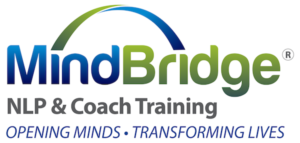- Speak and act with integrity. Possibly the most important step to building a foundation of trust is to do what you say you will do. At the very least do your best, even if it is a small thing. If you have a habit of canceling or failing to follow through, that behavior will create doubt in your trustworthiness. Follow through on what you say you will do as often as you possibly can.
- Be truthful or be silent. It’s surprisingly simple to find yourself saying a little white lie to protect your friend, lover, or even your parents. We often do this when the truth isn’t pleasant. There are always ways to speak a truth respectfully. Model someone who is known for being truthful and speaking the truth in a way that is sensitive to the situation and to others’ feelings. People trust and value honesty even when they are unhappy with the content of what is being said. When the truth is necessary and uncomfortable, take time and consider how to presents facts in the most positive way and with a tone of voice that conveys your message meaningfully.
- Be forthcoming. Because there will always be people for whom trust means disclosure, when an opportunity to be vague arises… let it pass. When dealing with someone that identifies trust with disclosure allow yourself to step forward and fill their need in a way that maintains your boundaries. Volunteer necessary information to your listener to demonstrate that you are open and trustworthy.
Example: “How did the interview go?” “It went fine.”
Example of building trust: “How did the interview go?” “It went fine. Somewhat stressful, and I would have liked more time. However I feel that I did a good job of presenting myself and my ideas.”
You are giving a slightly expanded version of the message—the interview went fine—but by volunteering information, you are demonstrating a behavior that fulfills the need of the other. In situations which call for disclosure tell people what they want to know. When you provide reliable information you build trust.
If you do have secrets, let it be known. Realize that it isn’t necessary to reveal your most personal feelings and secrets just to be trustworthy. Everyone is entitled to privacy. But the key to being trustworthy while also maintaining your privacy is to make the boundary clear.
Example: “I am not ready to share my feelings about my ex-spouse right now, but I promise you have nothing to worry about.”
This gives your listener a chance to demonstrate she is understanding and patient, but most importantly, it gives your listener a sense of security. Even if they don’t like being shut out, they know that you will eventually divulge. Pretending the secret completely doesn’t exist will leak out unintentionally, and simply make them suspicious.
- Avoid masking truths. An off-shoot of “never lie” is never to mask truths. Sometimes it seems harmless to “morph” the truth into something more palatable to preserve your ego.
For example, a man not admitting that he’s broke that weekend may instead claim that he lost his credit card. The loss of a credit card is a harmless possibility, but the risk of the truth emerging (or the risk of your listener perceiving the lie) will fracture trust. Tell the truth to build trust.
- Keep secrets. No gossip allowed. Never blab someone else’s story. Enough said. You can only trust people who are discreet and those who can keep the same silences or protect your confidences.
- If you do lie, admit to it. Sometimes it feels unavoidable to lie. It is best to confess to your lie as soon as possible and explain your motives. If you get caught, don’t deny it. That is simply another lie.
- Speak your feelings. People who only convey hard facts come across as cold and distant.
- Tell the truth. If being honest and truthful is critical, you must be seen as someone who speaks the truth.
- Honor your promises. Trust requires that people believe you are dependable.
- Show openness. This implies relying on a person to give you the full truth. Mistrust comes as much from what people know, including what they do not know.
- Show consistency in your behavior. This relates to your reliability and predictability. It also determines your ability and good judgement in handling situations. Display loyalty. This refers to your ability to protect others, to be on the same side, in their presence, but, most importantly in their absence.
- Keep your promises, however small and insignificant they may seem. Trust requires that people know you are dependable.
- Be competent. Gain the respect and admiration of others by displaying adequate interpersonal or professional ability.
- Demonstrate a strong moral ethic. This is particularly important in relationships. The other must feel confident that you will not falter or show betrayal in any form, especially when away from the other. People must not doubt your ability to be true or dedicated.
- Be neutral when placed in difficult predicaments. Choose sides only when you are certain that you know the hard facts. Aim to be objective and show fairness. When making decisions or taking actions considering how others may perceive this in terms of objectivity and fairness.

